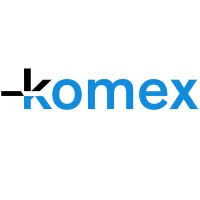Training
-
-
Qualitative Comparative Analysis (QCA) Workshop at GSERM, St. Gallen
GSERM, University of St. Gallen Tellstrasse 2 9000 St. Gallen, St. Gallen, SwitzerlandThe goal of this workshop is to provide a ground-up introduction to Qualitative Comparative Analysis (QCA) and fuzzy sets. Participants will get intensive instruction and hands-on experience with the fsQCA … Continue reading Qualitative Comparative Analysis (QCA) Workshop at GSERM, St. Gallen
CHF1100 – CHF2000 -
-
Qualitative Comparative Analysis (QCA): An Introduction (Online 4 Days)
OnlineCourse syllabus:
Day 1
6:30-7:00, Introductory session:
Who is who? Why have you chosen this course? What do you expect to get out of it?
What are we going to do over the next two days? What are we not going to do?
7:00-8:00, Epistemological foundations of QCA:
What are the epistemological foundations of QCA?
Where is QCA positioned in relation to case-oriented and variable-oriented research?
8:00-9:30, Exercise
The essence of QCA: logical minimization (and truth tables)
To get an understanding of the very basics of QCA, we will carry out a QCA analysis by hand.
Once we get the basics of QCA, we will explore data with an Excel add-in.Day 2
6:30-7:00, Conjunctural causation, equifinality, (data) asymmetry
What is conjunctural causation? What is equifinality? What is (data) asymmetry? Where do we see it in the world?
Whether/where do you expect conjunctural causation, equifinality, and/or (data) asymmetry in your field of research?
7:00-8:00, What can QCA be used for?
Data analysis, literature reviews, theory building, case selection, robustness tests
8:00-9:00, Further and future development of QCA as a method
Crisp set (cs) and fuzzy set (fs) QCA
Ongoing critique to QCA as a method
9:00-9:30, Open discussion, recap of the basic terminology and concepts:
Condition, outcome, conjunctural causation, equifinality, asymmetry, necessary condition, sufficient condition, logical minimisation.Day 3
6:30-8:00, What ahve we learned so far?
Exploring more datasets using the Excel add-in.
8:00-8:30, How easy is it to use QCA?
Jeroen's experiences with using QCA in small and multi-year research projects.
8:30-9:30, The most common challenges when applying QCA (and how to deal with them)
Is the number of cases you have all that matters?
How many conditions can be included in the theoretical model?
What is limited diversity and what to do about it?Day 4
6:30-7.30, Step 4: Calibration of Data
What is data calibration? Why is it so important (and often time consuming) in QCA?
How to Calibrate your data (for csQCA and fsQCA).
7:30-8:00, Open discussion, calibrating your own data
What challenges do you expect to encounter in callibrating your own data?
8:30-9:30, Important research design choices
Good practice to follow (a guideline)
Open discussion: where, why and how do you want to use QCA in your (future) research?
What are your hopes and concerns in applying QCA?During the course, there will be the opportunity for participants to have a one-hour one-on-one meeting with the instructor outside class hours.
$720 – $2280 -
Qualitative Comparative Analysis (QCA): A set-analytic approach to studying organizational configurations
OnlineThis 3-day introduces you to the nuts and bolts of QCA. It is structured in six sessions (each ½ day) covering the history of QCA, the logic of case selection … Continue reading Qualitative Comparative Analysis (QCA): A set-analytic approach to studying organizational configurations
500€ -
Qualitative Comparative Analysis (QCA): An Application in 10 Steps (Online 4 Days)
OnlineThis master class is designed for participants who are familiar with the basics of QCA. Participants without any QCA experience or previous formal QCA training first complete the master-class, "Qualitative … Continue reading Qualitative Comparative Analysis (QCA): An Application in 10 Steps (Online 4 Days)
$720 – $2280 -
“Intro to Qualitative Comparative Analysis”, 5-day remote workshop
Online• Covers the entire standard QCA workflow: choice of conditions; calibration; analysis of necessity; truth table building and processing; minimization and result interpretation; robustness assessment • We reproduce a published … Continue reading “Intro to Qualitative Comparative Analysis”, 5-day remote workshop
§1600 – §2900 -
-
28th Summer School in Social Science Methods: Qualitative Comparative Analysis: Research Design and Application
Università della Svizzera italiana (USI), Lugano West Campus Via Giuseppe Buffi 13, Lugano, SwitzerlandThis workshop provides participants with a thorough introduction to Qualitative Comparative Analysis (QCA). Since its inception (Ragin 1987), QCA has gained recognition among social scientists as a case-based research method … Continue reading 28th Summer School in Social Science Methods: Qualitative Comparative Analysis: Research Design and Application
€700 – €1100 -
-

European QCA Conference: Paper Development Workshop
Tilburg University Tilburg, NetherlandsThe Paper Development Workshop at the European QCA Conference 2024 provides a unique platform for QCA researchers to get feedback on their QCA papers and to meet QCA experts. The … Continue reading European QCA Conference: Paper Development Workshop
-
-

Konstanz Methods Excellence Workshops (KOMEX): Basic Introduction to R for Beginners (online)
OnlineIn early February 2024, komex offers the course Microcredential ekomex A Basic Introduction to R for Beginners. This 2-day virtual course introduces the open-source statistical software R for beginners. It … Continue reading Konstanz Methods Excellence Workshops (KOMEX): Basic Introduction to R for Beginners (online)
180 EURO -

Konstanz Methods Excellence Workshops (KOMEX): Advanced QCA (with R) course (online)
OnlineIn February 2024, Komex offers the course Microcredential ekomex Advanced Qualitative Comparative Analysis (QCA). This 5-day online course exposes participants to advanced methodological developments in Qualitative Comparative Analysis (QCA) that allow … Continue reading Konstanz Methods Excellence Workshops (KOMEX): Advanced QCA (with R) course (online)
440 EURO -

Konstanz Methods Excellence Workshops (KOMEX): Introduction to Qualitative Comparative Analysis (QCA) using R (On-Site course)
University of Konstanz Universitaetsstrasse 10, Konstanz, GermanyThis five-day in-person course introduces you to Qualitative Comparative Analysis (QCA), an innovative set-theoretic technique that allows for comparisons of small, intermediate or large numbers of cases in order to … Continue reading Konstanz Methods Excellence Workshops (KOMEX): Introduction to Qualitative Comparative Analysis (QCA) using R (On-Site course)
440 EURO – 540 EURO
